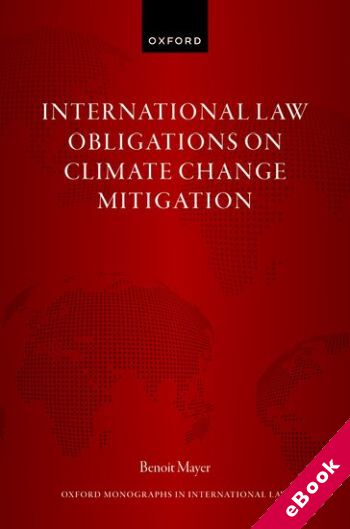
The device(s) you use to access the eBook content must be authorized with an Adobe ID before you download the product otherwise it will fail to register correctly.
For further information see https://www.wildy.com/ebook-formats
Once the order is confirmed an automated e-mail will be sent to you to allow you to download the eBook.
All eBooks are supplied firm sale and cannot be returned. If you believe there is a fault with your eBook then contact us on ebooks@wildy.com and we will help in resolving the issue. This does not affect your statutory rights.
Recent years have witnessed exciting developments in international negotiations, litigation, and scholarship about climate change, but doctrinal research in the field remains in its infancy. In particular, little is known about how fast states are required to limit and reduce their greenhouse gas emissions.
The first part of the book identifies the relevant obligations through an analysis of treaties, custom, and other sources of international law. Beyond express quantified commitments contained for instance in nationally determined contributions, the book sheds light on the existence of general obligations of due diligence. While these general obligations are difficult to interpret, they are often more demanding.
The second part explores how these general obligations can be applied objectively, for instance by a court, in concrete cases. Instead of an improbable judicial assessment of a state's requisite level of mitigation action, the book shows the possibility of assessing a state's conduct based on the measures that general mitigation obligations entail. These measures relate to corollary duties of cooperation, vigilance, and consistency.
This book presents a first comprehensive doctrinal study of states' obligations on climate change mitigation. It shows that such obligations arise not only from climate treaties, but also from customary international law, unilateral declarations, and, possibly, human rights treaties. It also explores the interactions between these multiple obligations.